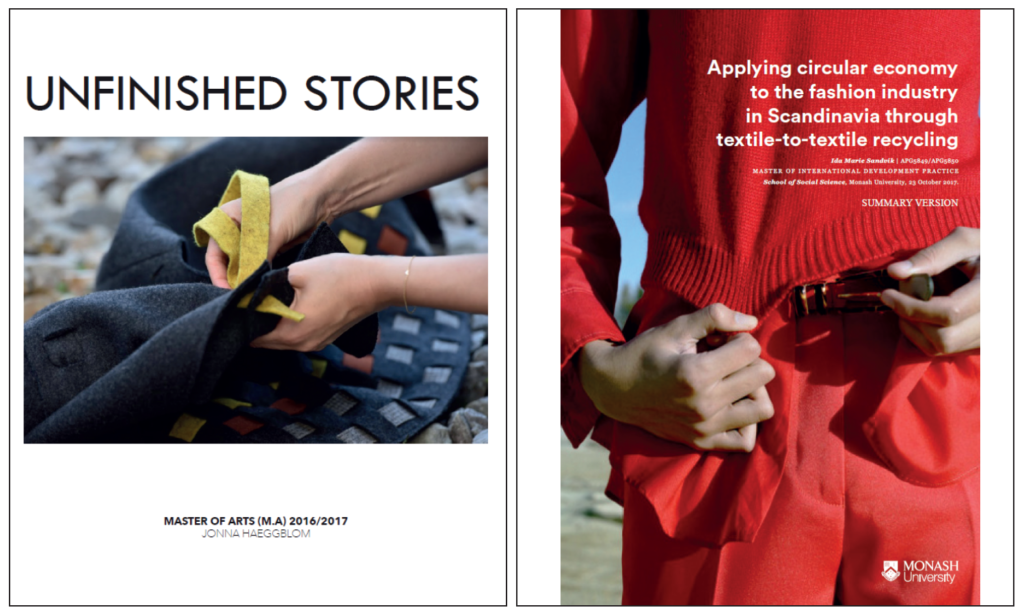Researchers within the Mistra Future Fashion program lend their expertise and guidance to the future of sustainable fashion.
In addition to conducting our own studies many of the researchers within our program are engaged in advising and supporting student work. The interest for sustainable fashion and innovation is on a rise within academia and several new bachelor and master programs have started during the last few years. Here are some exampel of the work coming out of these programs.

Swedish student Jonna Haeggblom just finished her dissertation at ESMOD Berlin MA program Sustainability in Fashion. Jonna’s work is titled “Unfinished Stories” and it is conducted in collaboration with Swerea IVF and Mistra Future Fashion. The final product is a paper and a small number of samples showcased at Berlin Fashion Week in January 2018. Unfinished Stories is a research project that by reflecting on the concept of speed explores ideas and practices across a garment’s full life cycle to find design and business solutions aiming to create sustainable, resilient and lasting value in a circular economy. The vision is to create garments that can be updated throughout their lives, prolonging the life cycle and increasing the emotional connection. In the paper a possible framework of how to assess desirability of use, the emotional life cycle assessment, is proposed. The collection created realizes the vision of garments seen as unfinished stories. The pieces are designed without an end-date in mind and offer the user endless possibilities to change update and modify one’s piece throughout its life. Dr Sandra Roos from and Dr Christina Jönsson from Mistra Future Fashion and Swerea IVF acted as advisors during the process of the work.
To learn more, download the full paper here.
At Monash University in Australia Danish student Ida Marie Sandvik just finished her master within the International Development Practices program by publishing her dissertation “Applying circular economy to the fashion industry in Scandinavia through textile-to-textile recycling”. Mistra Future Fashion’s Dr Hanna de la Motte functioned as an informant during the study and recent publications from amongst other Dr Anna Palme within our program was used to conclude existing research on the field. Ida’s study found that implementing textile-to-textile recycling in current business operations are inhibited by the lack of recycling technology. However, developing a recycling technology is challenged by separation of blends, additives to clothes, restoring quality, lack of knowledge of material and chemicals in garments. Furthermore, it is made even more challenging by the lack of connection between design and recycling, as well as the complexity of supply chains. In conclusion, the usage of technology is crucial to make sorting and recycling processes economically feasible for mainstream fashion companies that mainly compete on price
To learn more, download the full paper here.



